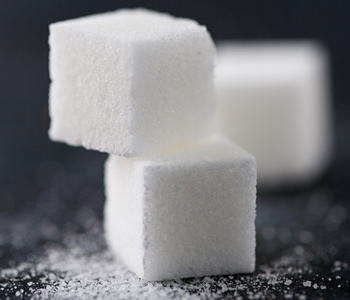However difficult it may be to avoid consuming it, sugar always seems to find a way to end up in our bodies. Although a small amount of sugar is alright for your diet, large amounts can lead to obesity, diabetes and some cases depression.
According to the World Health Organization, America has the highest obesity percentage in the World. Just over 30% of the population is obese. One of the reasons this number is so high because of sugar consumption.
For the average adult (2,000 calorie diet) 40 grams of sugar is the recommend amount for daily consumption. This number refers to adder sugars, not counting naturally occurring sugars that can be found in fruits and vegetables. Going over the recommended amount can be very easy, in fact on average Americans are eating 88.9 grams of added sugar a day. To give you an idea just how easy it can be, a 12-ounce can of Coke has 39 grams of sugar, putting you right at the recommended daily amount.
To help you avoid all those sugary foods, especially during the holidays, we have compiled a list of natural, healthy sugar alternatives.
Stevia
Derived from the leaves of the stevia plant of Brazil, this non-sugar sweetener is rapidly gaining in popularity in the U.S. Stevia has the advantage of being up to three hundred times sweeter than table sugar without inducing a glycemic response. Although a 1985 study suggesting that Stevia had genetically damaging effects, recent studies suggesting the sweetener is safe and may even offer health benefits. Stevia is available in a variety of forms in most natural food markets and some mainstream grocery stores.
Honey
Honey is making quite the comback in popularity as people turn away from processed sugar and look for a healthy sweetener option. Although it actually contains slightly more calories and carbohydrates than sugar, honey does have a higher mineral content than sugar. Another advantage to honey over table sugar is that it has a strong flavor, meaning less of it is used. Generally, the darker honeys have a stronger flavor as well as a higher mineral content.
Brown Rice Syrup
Commonly used for baking, brown rice rytup is derived from brown rice that’s cooked for a long period of time to create a sweet tasting syrup. The maltose component has a lower glycemic index which means it doesn’t cause rapid fluctuations in blood sugar and insulin level as does table sugar. It’s made up of both maltose and glucose and has a higher protein content than most healthy sweeteners.
Molasses
Molasses is a thick sweet, syrup derived during the manufacture of sugar from sugar cane. There are different types of molasses based on the level of extraction. The sweetest comes from the first extraction and is known as light molasses. The darkest form, blackstrap molasses, is the least sweet, and is derived from the final extraction. Although it doesn’t offer a significant caloric advantage over table sugar, it is higher in vitamins and minerals.
Sorghum
This is another syrup derived from the sweet sorghum grain. It has a flavor somewhat similar to molasses and is rich in the minerals calcium, potassium, and iron. It can be used in baking or in recipes that call for molasses, maple syrup, or honey. Sorghum is also a rich source of phytochemicals which have antioxidant activity.



